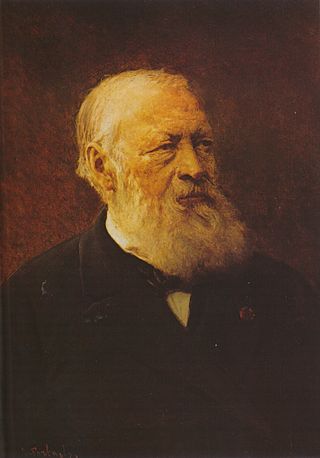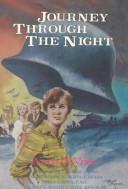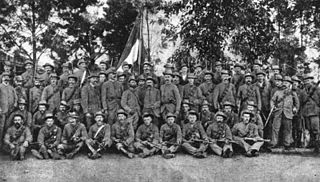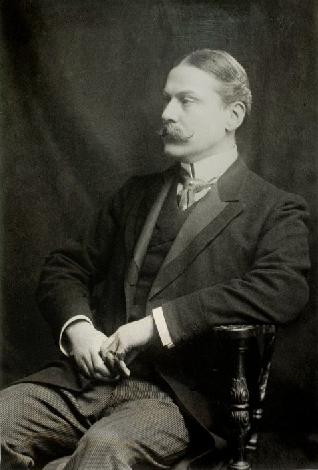
The Great Trek was a northward migration of Dutch-speaking settlers who travelled by wagon trains from the Cape Colony into the interior of modern South Africa from 1836 onwards, seeking to live beyond the Cape's British colonial administration. The Great Trek resulted from the culmination of tensions between rural descendants of the Cape's original European settlers, known collectively as Boers, and the British Empire. It was also reflective of an increasingly common trend among individual Boer communities to pursue an isolationist and semi-nomadic lifestyle away from the developing administrative complexities in Cape Town. Boers who took part in the Great Trek identified themselves as voortrekkers, meaning "pioneers", "pathfinders" in Dutch and Afrikaans.

John Lothrop Motley was an American author and diplomat. As a popular historian, he is best known for his works on the Netherlands, the three volume work The Rise of the Dutch Republic and four volume History of the United Netherlands. As United States Minister to Austria in the service of the Abraham Lincoln administration, Motley helped to prevent European intervention on the side of the Confederates in the American Civil War. He later served as Minister to the United Kingdom during the Ulysses S. Grant administration.

Willem Frederik Hermans was a Dutch author of poetry, novels, short stories, plays, as well as book-length studies, essays, and literary criticism. His most famous works are The House of Refuge, The Darkroom of Damocles, and Beyond Sleep.

Henri (Hendrik) Conscience was a Belgian author. He is considered the pioneer of Dutch-language literature in Flanders, writing at a time when Belgium was dominated by the French language among the upper classes, in literature and government. Conscience fought as a Belgian revolutionary in 1830 and was a notable writer in the Romanticist style popular in the early 19th century. He is best known for his romantic nationalist novel, The Lion of Flanders (1838), inspired by the victory of a Flemish peasant militia over French knights at the 1302 Battle of the Golden Spurs during the Franco-Flemish War.
Dutch language literature comprises all writings of literary merit written through the ages in the Dutch language, a language which currently has around 23 million native speakers. Dutch-language literature is the product of the Netherlands, Belgium, Suriname, the Netherlands Antilles and of formerly Dutch-speaking regions, such as French Flanders, South Africa, and Indonesia. The Dutch East Indies, as Indonesia was called under Dutch colonization, spawned a separate subsection in Dutch-language literature. Conversely, Dutch-language literature sometimes was and is produced by people originally from abroad who came to live in Dutch-speaking regions, such as Anne Frank and Kader Abdolah. In its earliest stages, Dutch-language literature is defined as those pieces of literary merit written in one of the Dutch dialects of the Low Countries. Before the 17th century, there was no unified standard language; the dialects that are considered Dutch evolved from Old Frankish. A separate Afrikaans literature started to emerge during the 19th century, and it shares the same literary roots as contemporary Dutch, as Afrikaans evolved from 17th-century Dutch. The term Dutch literature may either indicate in a narrow sense literature from the Netherlands, or alternatively Dutch-language literature.

Workum is a city located in the municipality of Súdwest-Fryslân in Friesland, Netherlands. It received city rights in 1399 and is one of the eleven cities of Friesland. It had a population of 4,435 in January 2017.

The Battle of Spioen Kop was a military engagement between British forces and two Boer Republics, the South African Republic and the Orange Free State, during the campaign by the British to relieve the besieged city Ladysmith during the initial months of the Second Boer War. The battle was fought 23–24 January 1900 on the hilltop of Spioen Kop(1), about 38 km (24 mi) west-southwest of Ladysmith and resulted in a Boer victory.

Arnon Yasha Yves Grunberg is a Dutch writer of novels, essays, and columns, as well as a journalist. He published some of his work under the heteronym Marek van der Jagt. He lives in New York. His work has been translated into 30 languages. In 2022 he received the PC Hooftprijs, a Dutch literary lifetime achievement award. His most acclaimed and successful novels are Blue Mondays and Tirza. The New York Times called the latter ‘grimly comic and unflinching (…) while not always enjoyable, it is never less than enthralling’. Frankfurter Allgemeine Zeitung described him as ‘the Dutch Philip Roth’.
As there is no dominant national language, the four main languages of French, Italian, German and Romansch form the four branches which make up a literature of Switzerland. The original Swiss Confederation, from its foundation in 1291 up to 1798, gained only a few French-speaking districts in what is now the Canton of Fribourg, and so the German language dominated. During that period the Swiss vernacular literature was in German, although in the 18th century, French became fashionable in Bern and elsewhere. At that time, Geneva and Lausanne were not yet Swiss: Geneva was an ally and Vaud a subject land. The French branch does not really begin to qualify as Swiss writing until after 1815, when the French-speaking regions gained full status as Swiss cantons. The Italian and Romansch-Ladin branches are less prominent.
Flemish literature is literature from Flanders, historically a region comprising parts of present-day Belgium, France and the Netherlands. Until the early 19th century, this literature was regarded as an integral part of Dutch literature. After Belgium became independent from the Netherlands in 1830, the term Flemish literature acquired a narrower meaning and refers to the Dutch-language literature produced in Belgium. It remains a part of Dutch-language literature.

Anna Maria Geertruida "Annie" Schmidt was a Dutch writer. She is called the mother of the Dutch theatrical song, and the queen of Dutch children's literature, praised for her "delicious Dutch idiom," and considered one of the greatest Dutch writers. An ultimate honour was extended to her posthumously, in 2007, when a group of Dutch historians compiled the "Canon of the Netherlands" and included Schmidt, alongside national icons such as Vincent van Gogh and Anne Frank.

Journey Through the Night is a novel, originally in four volumes published from 1951 to 1958, by Dutch author Anne de Vries. The novel centers around the representation of the Second World War in the Netherlands and the impact it had on a reformed family. Since its publication, it has been translated in English several times, most recently in 2001 by Inheritance Publications..

Boer foreign volunteers were participants who volunteered their military services to the Boers in the Second Boer War.

Hendrik Jan Marsman, better known by his pen name, J. Bernlef, was a Dutch writer, poet, novelist and translator, much of whose work centres on mental perception of reality and its expression. He won numerous literary awards, including the Constantijn Huygens Prize in 1984 and the P. C. Hooft Award in 1994, both of which were for his work as a whole. His book Hersenschimmen features on the list of NRC's Best Dutch novels.

Robert Jacobus Fruin was a Dutch historian. A follower of Leopold von Ranke, he introduced the scientific study of history in the Netherlands when he was professor of Dutch national history at Leiden University.

Afrikaners are a Southern African ethnic group descended from predominantly Dutch settlers first arriving at the Cape of Good Hope in 1652. Until 1994, they dominated South Africa's politics as well as the country's commercial agricultural sector. Afrikaners make up approximately 5.2% of the total South African population, based upon the number of White South Africans who speak Afrikaans as a first language in the South African National Census of 2011. Afrikaans, South Africa's third most widely spoken home language, evolved as the mother tongue of Afrikaners and most Cape Coloureds. It originated in the Dutch vernacular of South Holland, incorporating words brought from the Dutch East Indies and Madagascar by slaves.

The South African Wars, including – and commonly referred to as – the Confederation Wars, were a series of wars that occurred in the southern portion of the African continent between 1879 and 1915. Ethnic, political, and social tensions between European colonial powers and indigenous Africans led to increasing hostilities, culminating in a series of wars and revolts, which had lasting repercussions on the entire region. A key factor behind the growth of these tensions was the pursuit of commerce and resources, both by countries and individuals, especially following the discoveries of diamonds in the region in 1867 and gold in 1862.

Maarten Maartens, pen name of Jozua Marius Willem van der Poorten Schwartz, was a Dutch writer, who wrote in English. He was quite well known at the end of the nineteenth and the beginning of the twentieth century, in both the UK and the US, but he was soon forgotten after his death.

Adriaan van Dis is a Dutch author. He debuted in 1983 with the novella Nathan Sid. In 1995 his book Indische Duinen, which in its narrative is a follow-up to his debut novella, was also awarded several prestigious literary awards.
David Colmer is an Australian writer and translator, mainly of Dutch-language literature. He translates novels, poetry and children’s literature and is the current English translator of Gerbrand Bakker, Dimitri Verhulst, Annie M.G. Schmidt, and Nachoem M. Wijnberg. Colmer's poetry translations include selections of the work of Hugo Claus, Anna Enquist, Cees Nooteboom, Ramsey Nasr and Paul van Ostaijen.















